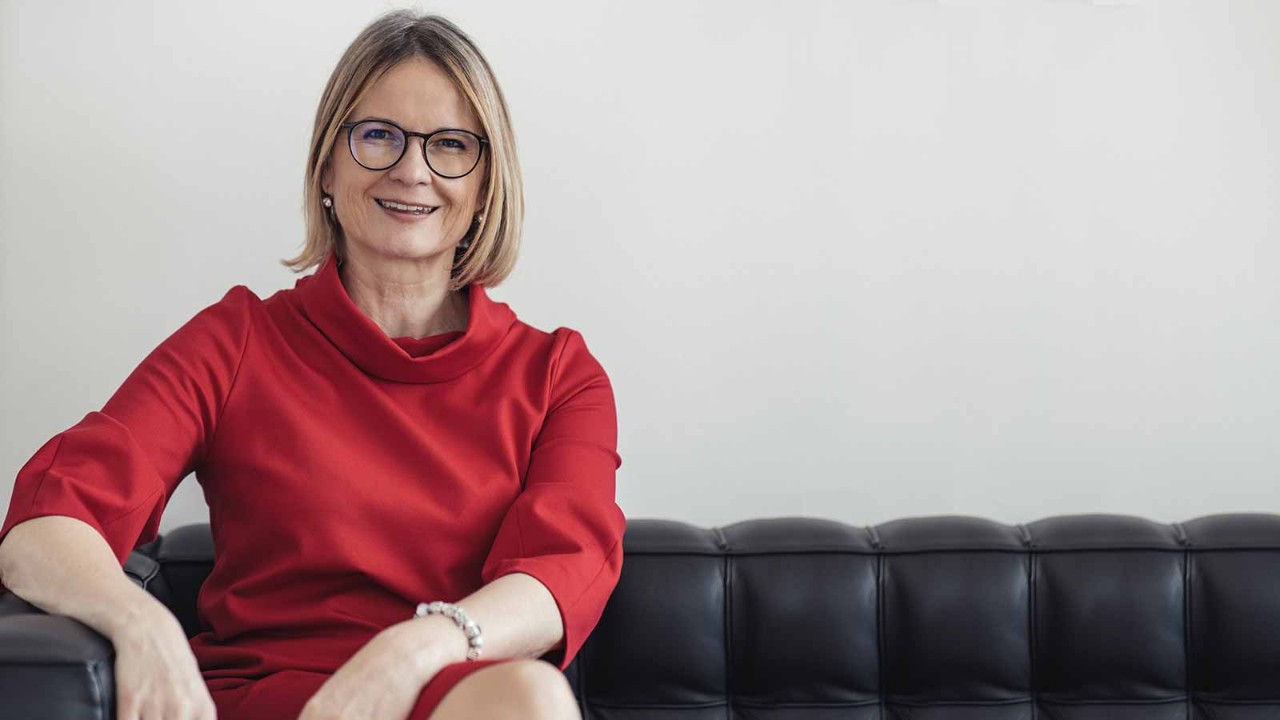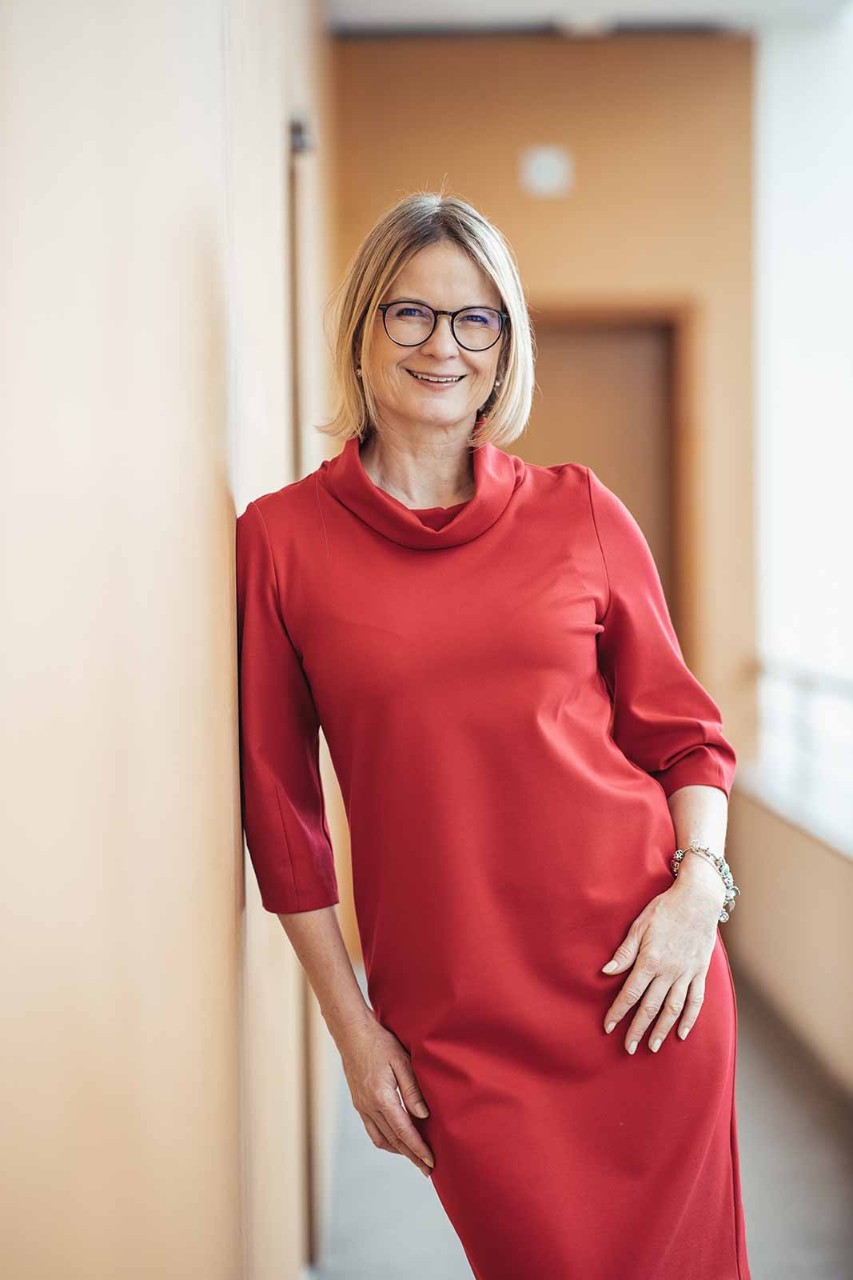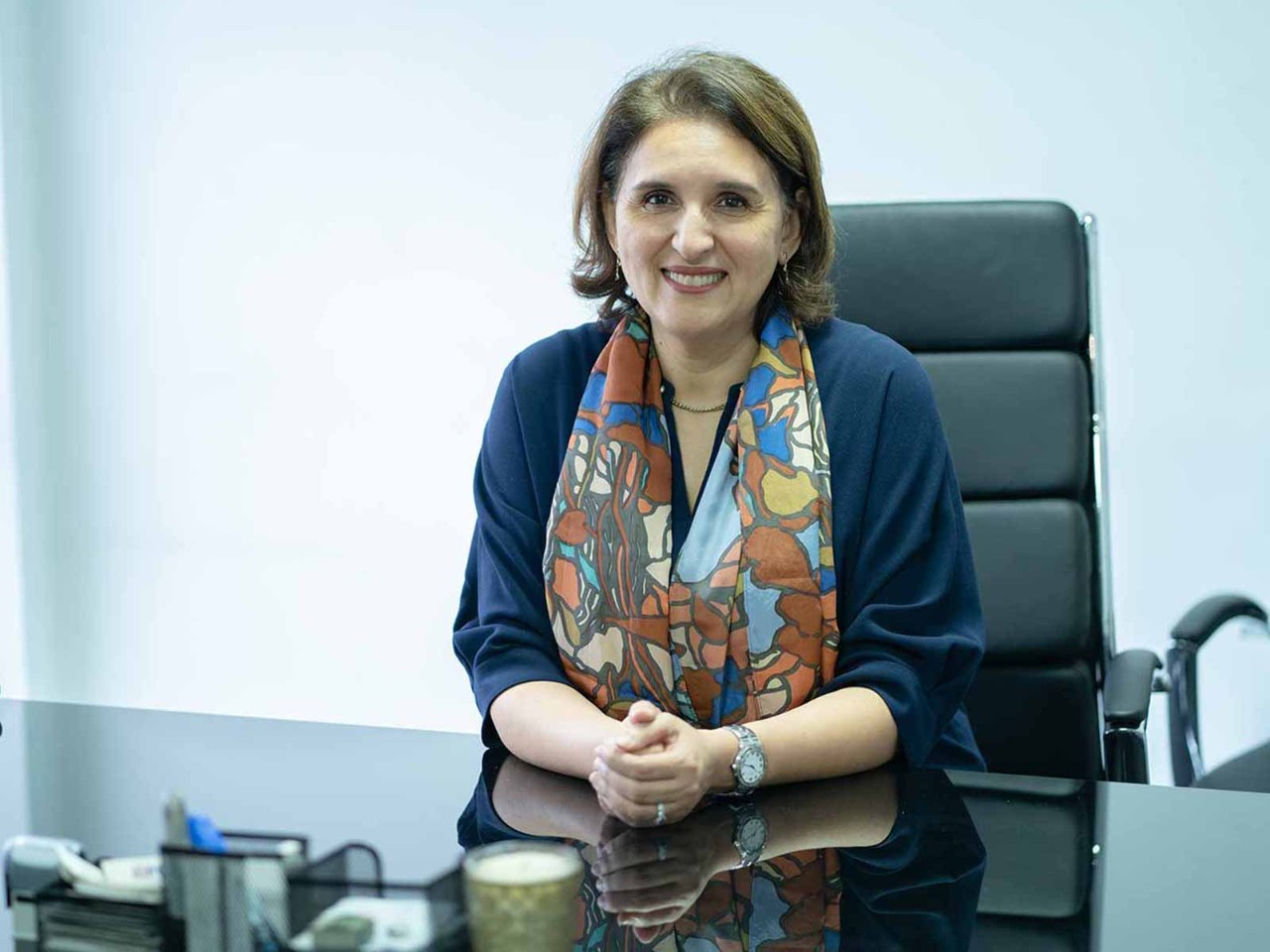
For Katarina Kaszasová FCCA, the invasion of Ukraine was, as it was for many in Slovakia, both a chilling and poignant reminder of the country’s time behind the Iron Curtain.
Now the managing director of the country’s Auditing Oversight Authority (UDVA), she was 19 in 1989 when the Velvet Revolution ushered Slovakia, then part of Czechoslovakia, out from the shadow of the Soviet Union and into a market economy with all the freedoms and responsibilities that entails.
‘I still can’t believe that in Europe we now face such events’
But watching the war for Ukraine’s freedom is disturbing. ‘It’s very sensitive – something we feel in our hearts,’ says Kaszasová. For Slovakia, she adds, Ukraine has been a ‘buffer’ between itself and Russia, between the country it is now and what it was in the past: ‘I still can’t believe that in Europe we now face such events.’
Kaszasová is speaking from her office in Bratislava via Zoom, a photograph of the Slovakian president Zuzana Čaputová on the wall behind. (Kaszasová is a fan.) She is business-like, earnest, eager to smile, and open about her career and its challenges.
CV
2020
Managing director, Auditing Oversight Authority, Slovakia
2016 – 2019
Head of governing bodies secretariat, European Investment Bank, Luxembourg
2013 – 2015
Board member, European Investment Fund, Luxembourg
2012 – 2015
Chairwoman and member of the Board of auditors, European Stability Mechanism, Luxembourg
2008 – 2015
Vice chairwoman of the Board, Audit Oversight Authority, Slovakia
2005 – 2015
Member of the Board of directors, European Investment Bank
2004 – 2015
Director general of state reporting, Ministry of Finance, Slovakia
1995 – 2003
Up to Audit Manager, KPMG Slovakia
New-found freedoms
Kaszasová’s working life began at KPMG just as the Slovakian economy was coming to terms with new-found freedoms and market forces. She came to the Big Four firm after gaining degrees first in chemistry and then in economics.
The order is important. Kaszasová started her chemistry degree before the end of socialism in Slovakia when she was not permitted to study anything but sciences because she came from a dissident family; her grandfather was Roman Kaliský, a writer and journalist harassed by the communist regime. Her parents, both chemists, were also opponents of the regime and lived through the trauma of 1968, which saw Communist Russia enter Czechoslovakia in tanks to put down a liberal uprising.
However, once the Velvet Revolution came along, Kaszasová saw that there was more demand for financial skills than industrial chemists and changed course.
‘Times were difficult, but there was also a feeling that we were free’

She spent eight years with KPMG, rising to audit manager. But, not far from partnership and raising a three-year-old daughter, Petra, Kaszasová realised she needed an improved work-life balance and in 2004 she joined Slovakia’s Ministry of Finance as director general of the state reporting section – the most senior civil servant level at the ministry.
Twelve years followed with the ministry before Kaszasová moved to Luxembourg to join the European Investment Bank (EIB), overseeing administration for the bank’s governing bodies, including the board and audit committee.
In 2019 she made her way back to Slovakia to head up the country’s audit regulator. It has been quite the journey.
Perfect combination
Her current position, Kaszasová says, enables her to combine a knowledge of audit, her experience in public finance and her time at various positions in the policy driven bank. ‘It’s a perfect combination,’ she says.
Looking back, Kaszasová reflects on a career that began at KPMG during a period for Slovakia that she describes as like the ‘Wild West’. State-owned industries were privatised and their funds siphoned; people were fired in large numbers; organised crime was present in business and in the streets.
Throughout this period Kaszasová travelled the country, staying in bad hotels and coming home only at weekends. She learned auditing the hard way, on the job, along with her English, and alongside studies for ACCA exams. It was a stressful period but one Kaszasová looks back on fondly.
‘ACCA is a community of professionals I’m very happy to be in’
‘When you move from jail to freedom, it’s one extreme to another and it takes time to adjust,’ she recalls. ‘Times were difficult, but there was also a feeling that we were free. It was great to be part of the changes – to observe, to contribute and also learn some lessons.’
ACCA journey
The ACCA Qualification was a welcome alternative to local courses. ‘It was very important at the beginning of my career,’ says Kaszasová. ‘I started and finished my ACCA Qualification while at KPMG. At that time, schools and universities in Slovakia were very much behind in this area.
‘ACCA’s courses and qualification were what young professionals needed. Nowadays, it’s a community of professionals I’m very happy to be in. It’s also a platform for me to share my experience and the lessons I’ve learned.’
Moving to the ministry was a big deal and came after much soul searching. The job was to lead a project moving government finances to accruals accounting – ‘crucial’, Kaszasová says, for ‘meaningful’ management of public finances.
‘Our reforms influenced every single public sector accountant, every state-owned organisation,’ she says.
She also came away with some key lessons. For instance, the poor reputation of civil servants was unjustified. There was also important insight into working with politicians. ‘You can work with different ministers if you behave with objectivity and integrity, and if you are loyal to the institution and to the citizens of the country,’ she says.
While at the ministry, Kaszasová was Slovakia’s representative on the board of the EIB and, after more than a decade overseeing public finances, a conversation about her future led to a posting in Luxembourg where she headed the EIB’s secretariat, overseeing administration of the board and other statutory bodies such as the audit committee. That last one, Kaszasová says, was ‘close to my heart’; the EIB offered an opportunity to live abroad, to work in banking and an international environment, and to fulfil her daughter’s dream of studying overseas.
Top tips
‘Build on your Qualification because the ACCA qualification is one of the best I have seen and I know those who pass are really great.’
‘Be patient because success does not come in one or two years.’
‘Stay open minded, listen and try to use your critical thinking, and don’t be afraid to speak up.’
After four years with EIB, she moved back to Bratislava to become Slovakia’s chief audit regulator. She had already served on the board of the Auditing Oversight Authority while at the Ministry of Finance, but this was an opportunity to lead the organisation, which she has done for the past two years.
‘Our intention is not to kill the auditing profession but to help push it towards enhanced quality in the public interest’
Kaszasová says her inbuilt auditor’s scepticism tells her it’s too early to judge whether her time in charge has been a success, though the ‘signals’ received so far have been ‘very positive’.
This must be reassuring because the challenges facing the body are significant. First, there’s maintaining the high quality of audit without spooking the audit firms. ‘They know that their regulator is professional with a good background and with good intentions,’ says Kaszasová. ‘Our intention is not to kill the auditing profession but to help push it towards enhanced quality in the public interest, into a high-quality auditing profession.’
She reveals two big concerns: recruiting and retaining the right staff and dealing with concentration in the audit market, an issue as significant for Slovakia as it is everywhere else in the world.
Impact of war
And then there is Ukraine. A week after the Russian invasion, Kaszasová led roundtable discussions with leading audit firms about the impact of the war, sanctions and the energy crisis on audit, and how it might be reflected in audit reports.
‘There are many different angles in the challenge for the auditing profession,’ says Kaszasová. The Big Four firms have been sharing their own knowledge but it will be next year, after the December year-ends, that the results will be seen.
Despite the challenges, Kaszasová has a firm grip. And that may be an outcome of her Iron Curtain experience which, she says, has given her ‘resilience’, the ability to ‘stay calm and think’, and a capacity for ‘facing enormous stress and workload’.
That said, Kaszasová says she has changed in recent years, dialling back her preference for ‘results and process’ in favour of becoming more people orientated, mentoring, creating and maintaining conditions for personal development. And that may be a legacy of living behind the Iron Curtain, too.
‘Maybe what’s inside me,’ she says, ‘is to create a psychologically safe environment for exchanging views because this was not permitted before the Velvet Revolution.’ In these uncertain times, that’s a thought worth holding on to.



